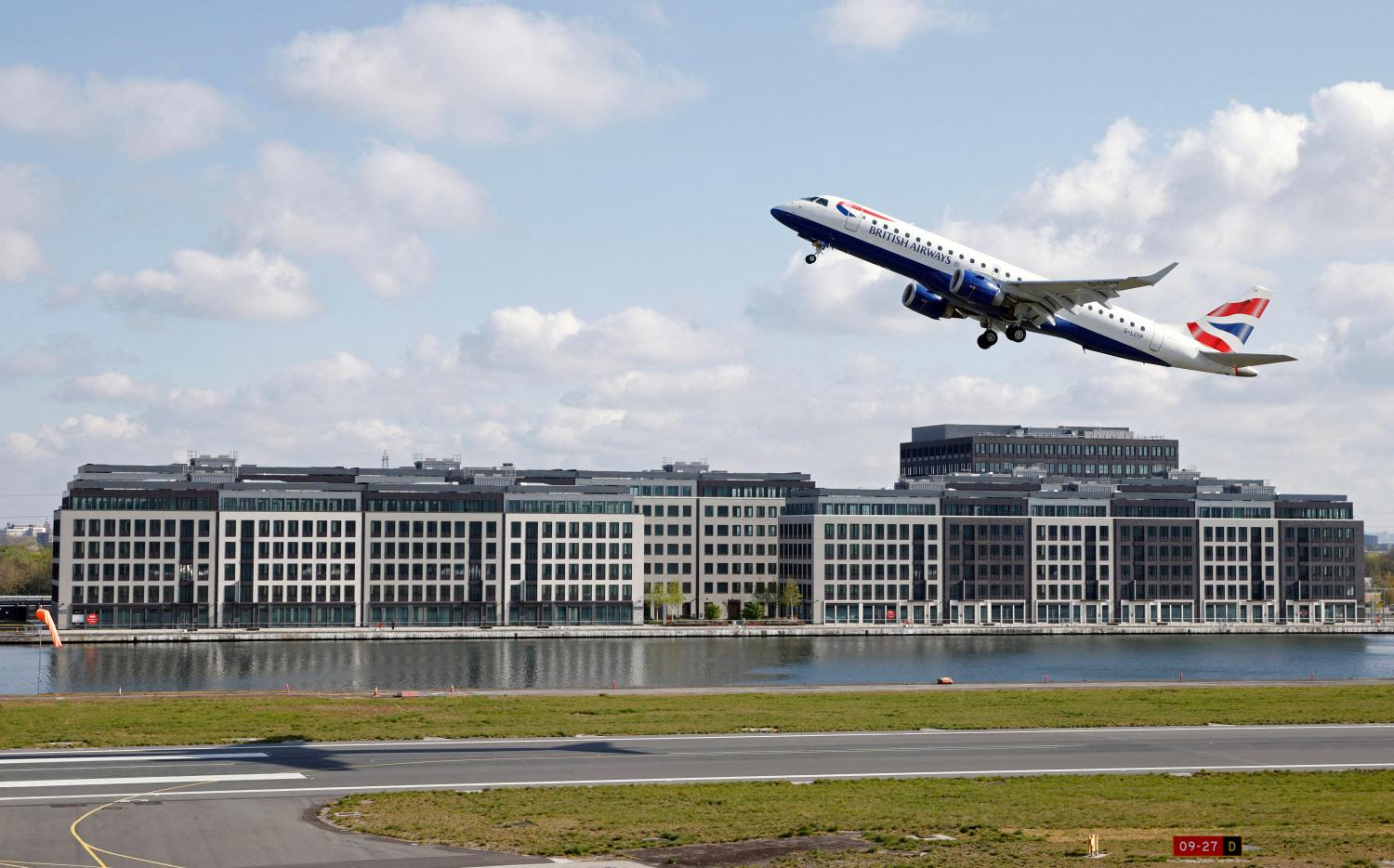
Airlines and airports around the world have been extending passenger caps and cuts to flight schedules through the fall and winter, attempting to steady operations after a wild summer of global travel disruptions that show signs of easing.
The aviation industry struggled to keep up with a crush of travelers that took to the skies this summer. That pressure is beginning to let up as the peak vacation season ebbs and as some of the emergency measures the industry took to reduce capacity begin to make a difference.
Airports such as London Heathrow, struggling with labor shortages and other problems, capped the number of passengers allowed to depart daily, forcing airlines to cut capacity.
In many places that has reduced long lines and led to fewer lost bags and flight cancellations and delays.
U.S. airlines' rate of cancellations fell from 2.7% of flights in June to 1.7% in July, though severe storms throughout August led to another uptick in delays and cancellations, according to FlightAware, a flight-tracking site.
Despite the recent improvements, travel consultants say they are bracing for flight disruptions for months to come as the industry balances demand with a workforce that is still ramping back up after pandemic-related cutbacks.
"I don't have any reason to believe that service levels are going to come back to where they used to be anytime soon," said Brandon Strauss, a business-travel industry consultant and president of CapTrav, a travel-software company.
Carriers globally have been cutting fall and winter schedules, trying to better match the number of planned flights with staffing and other resources.
JetBlue Airways has extended some flight-reduction plans into early next year. American Airlines had expected to be able to restore about 95% of its 2019 flying levels this year. Last month, it revised that down to 91.5%, at the midpoint of its guidance.
JetBlue president Joanna Geraghty said some of the constraints are beyond airlines' control.
JetBlue now has record-high staffing levels, including 14% more pilots than in 2019, and its cancellation rate has fallen toward 2019 levels, she said.
But the airline still can't fly as much as it once did, and as much as demand warrants.
"We are preparing for a reality where there is just a more fragile infrastructure," Ms. Geraghty said, pointing to staffing constraints within air-traffic control that have caused delays. "We'd love to be flying more."
The Federal Aviation Administration has said it is adding controllers where demand has increased and is on target to meet hiring goals, but weather and heavy traffic volumes, rather than air-traffic-control staffing, account for the majority of delays.
In Europe, where delays, cancellations and airport congestion were worse than in the U.S., carriers including British Airways, Deutsche Lufthansa and discounter Wizz Air have reined in their schedules to avoid a continuation of the summer turmoil.
Airlines also have said they want to limit the millions of dollars in costs they have incurred to reimburse customers, pay out compensation and cover other bills associated with the disruptions.
British Airways, a unit of International Consolidated Airlines Group SA, last week said it would cut more than 10,000 flights over the winter season, running from Oct. 30 through March 25.
Those cuts follow more than 30,000 flight reductions it made this summer to cope with staff shortages and to meet the caps imposed at Heathrow.
Heathrow's chief executive, John Holland-Kaye, has said the hub could keep the restrictions in place for a year into next summer.
British Airways, which had previously planned to return to 2019 levels of flying across the Atlantic -- its most important route -- by the third quarter of this year, is now scheduled to reach that point at the start of January next year, said Luis Gallego, CEO of the airline's parent company.
As of July, BA had hired 4,000 new staff in 2022. It needs about 7,000 by the end of the year.
Frankfurt Airport, which is continuing its own limits on the number of flights allowed to depart the hub until the end of the summer, is in talks with airlines over extending those restrictions into winter, according to a spokesman. Both Amsterdam Schiphol and Heathrow have extended their restrictions through October.
Airlines and airports have hired thousands of new workers to replace those who left during the height of the pandemic in 2020. Staffing levels at U.S. carriers are nearly back to where they were in 2019.
Still, airlines are finding their operations aren't back up to speed. Some tasks take longer with more inexperienced workers still learning their roles.
British Airways said it is seeing an "experience lag" with new recruits at Heathrow. New security staff take longer than before to process passengers, and ground handlers need more time to unload baggage and maneuver ramps.
Carriers have also had to work through long training times for pilots and other workers, sometimes exacerbated by shortages of instructors.
Jeff Ward, founder of New York-based leisure-travel agency Savvy Navigator, said he is still seeing airlines regularly pulling scheduled flights, including for bookings in the fall.
He is expecting the disruption to continue and is advising passengers against adding complications such as checked bags.
Meanwhile, a new wave of Covid-19 infections has hit airlines in the Asia-Pacific region just as demand in the Southern Hemisphere sees a seasonal jump.
Qantas Airways and Air New Zealand said they are facing higher sickness rates among staff.
Air New Zealand said earlier this month it would cancel flights over the next six months as Covid-19 and influenza have swept through its workforce.
"Our flights are full, and we can't bring aircraft out of storage fast enough," Qantas CEO Alan Joyce said last Thursday.







